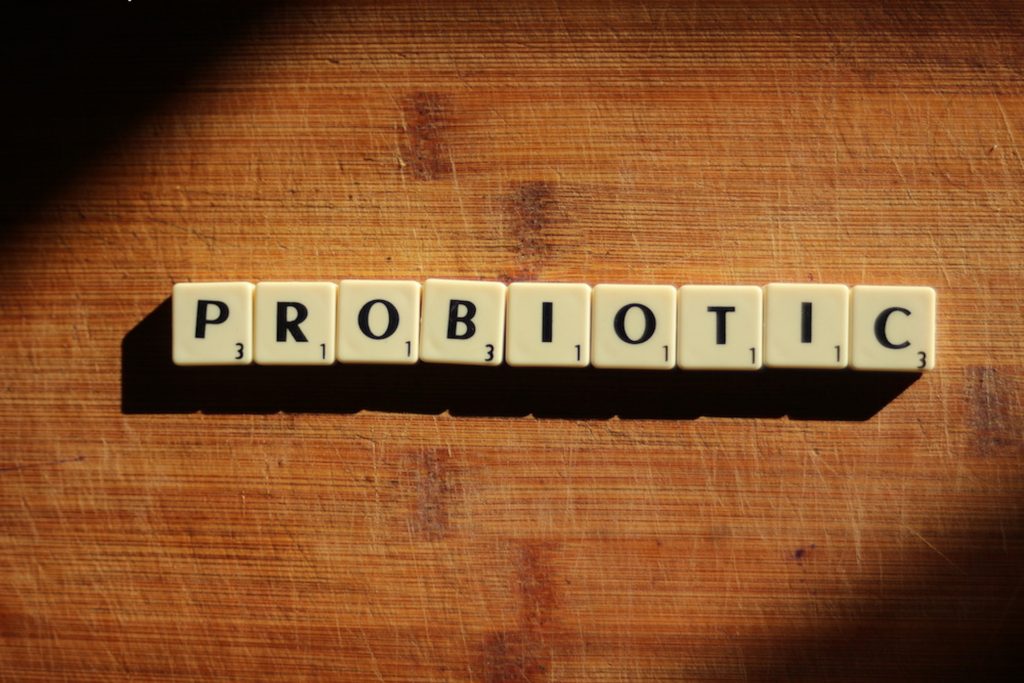The difference between prebiotic v. probiotic will be explained. In recent years, the terms “Probiotics” and “Prebiotics” have become very popular in the medical field. This has led to a lot of confusion among people not familiar with these two terms.
Let’s find out what they are and how do they affect our health:
A Probiotic is a live bacteria that is good for your health and aids in digestion. They benefit the body by performing critical functions such as:
Suppression of pathogens
Production of Vitamins B and K, etc.
Probiotics are usually found in fermented foods such as Yogurt, Sauerkraut, Kimchi, Cured Olives, and Desserts such as Mexican Microwave Choco Flan (Chocolate Custard). Read below for a comparison of prebiotic v. probiotic.
Prebiotics
Prebiotics, on the other hand, are food ingredients that support the growth or activity of probiotics already in our intestines. They also provide nutrition to the healthy bacteria we have living in our digestive tracts. These “healthy” bacteria play a major role in promoting gut health and immune system function. Prebiotics may be derived from certain food ingredients such as:
Fructo-oligosaccharides
Fructo-oligosaccharides (FOS) are carbohydrate molecules composed of short chains of fructose. They occur naturally in a variety of plants, including chicory root and Jerusalem artichoke, but can also be artificially produced from sucrose.
Due to their successfully proven prebiotic action in the colon, they are used as functional food ingredients. FOS are sometimes combined with inulin, another dietary fiber, yielding a product called chicory root fiber or inulin-oligofructose enriched inulin
Galactooligosaccharides
Galactooligosaccharides (GOS), also called oligogalacturonic acids, are carbohydrate-based ingredients found in breast milk as well as a number of fruits and vegetables. GOS have been extensively studied due to their prebiotic effects on gut microbiota.
Prebiotics are commonly found in many vegetables such as artichoke, chicory root, and onions.
Prebiotic Function in the Body
In recent years, there has been a focus on including more prebiotics into the Western diet to promote healthy intestinal microbiota. Prebiotics are non-digestible food ingredients that beneficially affect the host by selectively stimulating the growth and/or activity of one or a limited number of bacteria in the colon, and thus improving host health.
This selective stimulation of bacterial growth is contingent on the prebiotic reaching the colon largely intact, and thus providing a viable substrate for bacteria already residing in the intestine.
In general, there are two basic classes of prebiotics: those that are naturally present in foods (eg. oligosaccharides) and those that have been added to foods as a means to increase their prebiotic content (eg. inulin and polydextrose).
While both classes of prebiotics serve as substrates for colonic bacteria, depending on the food matrix and processing history a certain proportion of a prebiotic may not be available for fermentation in the large intestine .
In addition, it appears that there is considerable variation in the ability of different indigestible ingredients to beneficially influence intestinal microbiota.
Probiotics
Probiotics are live bacteria that are good for your health. They are found in yogurts or supplements, but other products could also contain probiotics.
Doctors and scientists do not know if probiotics can help with most conditions. But they seem to help prevent diarrhea and irritable bowel syndrome (IBS).
Probiotics are available in many countries around the world. People take them to help their digestive systems, especially after they have been treated with antibiotics.
People sometimes call probiotics ‘friendly germs’.
Probiotic Foods
“Probiotics” is a term that brings about images of yogurt cups and vitamin bottles with pills inside. However, there are many other foods that contain beneficial, live bacteria that also qualify as “probiotics”.
Yogurt’s benefits are well known, but many people do not realize that other fermented food sources also offer the same health benefits. Drinking kefir and eating kimchi is just as good for the digestive system as a trip to the grocery store to buy some Activia.
Some sources claim that when consumed daily, probiotic foods can strengthen the immune system and aid in digestion. They may also help improve lactose intolerance, constipation or diarrhea.
Probiotic food sources, such as kefir and sauerkraut, usually taste very strong. But they also offer many health benefits.
Fermented dairy products such as yogurt contain probiotics that can help with constipation, diarrhea and irritable bowel syndrome.
The number of bacteria in yogurts is relatively small when compared with other sources of probiotics.
There are at least 1,000 types of bacteria in yogurt samples from around the world.
These microorganisms can help with digestion and also produce vitamins such as D and B12.
Prebiotic vs. Probiotic
It’s easy to see the difference between the two ( Prebiotic v. Probiotic), Probiotics are our allies in fighting infections. While Prebiotics provides food for probiotics and digestive health. Knowing this, it is clear that both of these terms cannot be used interchangeably as they serve different functions in promoting good health.

Health benefits of Prebiotics
Oat, chicory, banana, and Jerusalem artichoke are rich in fructooligosaccharides (FOS), a type of prebiotic whose health effects have been studied extensively. They are fermentation substrates for gut bacteria, selectively stimulating the growth of “friendly” bifidobacteria over potentially pathogenic intestinal microorganisms.
Prebiotics have been shown to enhance the immune system, increase mineral absorption and bioavailability of certain minerals, decrease intestinal permeability and pathogenic bacterial overgrowth, as well as having a positive effect on insulin regulation. In addition, they have been reported to reduce serum cholesterol levels and promote weight loss. However, some studies suggest that those positive effects only apply to those with low initial intakes of dietary fiber.
Insulin
Inulin is a non-digestible oligosaccharide naturally present in many vegetables and whole wheat. Oligofructose (Fructo-oligosaccharides (FOS)) is commercially produced from chicory roots or synthesized enzymatically.
By adding fructose units in the production of inulin from sucrose. Inulin-type fructans have been an ingredient of infant formulas and have been used as a food supplement for both humans and animals.
Inulin is not broken down by gastric, pancreatic, or intestinal enzymes so it reaches the colon intact where it acts as a bifidogenic prebiotic, selectively stimulating the growth of “friendly” bifidobacteria over potentially pathogenic microorganisms.
Calcium Absorption
Compared to other prebiotics (FOS), inulin has stronger positive effects on calcium absorption, mineral bioavailability, and fat metabolism due to its higher degree of polymerization, resulting in more fermentable substrates that reach the distal regions of the colon. This results in increasing numbers of bifidobacteria, which are generally not detectable in the intestine of Western populations.
Oat fiber contains only small quantities of fructans but it has fermentability similar to that of other cereal fibers and its dietary fiber is particularly effective at lowering serum cholesterol levels.

Health Benefits of Probiotics
There is a huge body of scientific evidence to show that certain types of probiotics can be beneficial for your health.
In the simplest terms, probiotics are “good germs”. They help to maintain a healthy balance between good and bad bacteria in your intestinal tract. A healthy body has a greater proportion of good bacteria than bad.
However, if the balance of good and bad bacteria becomes upset, this can lead to problems such as intestinal infections or yeast (Candida) overgrowth. Taking probiotic supplements is believed to help restore this balance.
Probiotics are non-toxic, natural food products that may be consumed daily without risk. However, there is always a slight chance of side effects because each person’s physical condition is unique. Probiotics should therefore only be taken under medical supervision. People with severely impaired immune systems or chronic illness should consult their doctor before taking high doses of probiotic supplements for an extended period of time.
Other Health Benefits of Probiotics
Existing evidence suggests that various types of probiotics have health benefits which include:
• Preventing vaginal infections
• Boosting immunity in children
• Reducing the occurrence of colds and flu
• Preventing diarrhea caused by antibiotics
There is also some evidence to suggest that probiotics may help to prevent the development of irritable bowel syndrome (IBS) and Crohn’s disease, both of which are caused or worsened by an imbalance between good and bad bacteria.
As well as helping intestinal problems such as IBS, there is also evidence that some types of probiotics can help with oral health. A number of studies have shown that the consumption of Lactobacillus reuteri can inhibit harmful bacteria that cause dental cavities. Other research suggests Probiotic chewing gum containing Lactobacillus reuteri may reduce the risk of developing adult (not baby) tooth decay.
Prevention and Treatment
An article published in the Journal of Nutrition, Health and Aging suggests that probiotics may also help to prevent or treat other conditions such as
• Atopic dermatitis in babies and young children (inflammation of the skin due to allergies, eczema, and/or asthma). A study has shown that consuming Lactobacillus rhamnosus GG twice a day for three months can reduce infants’ symptoms by up to 50%.
• Chronic fatigue syndrome. Recent research found that just four weeks on a high-dose supplement containing several different strains of Lactobacilli significantly improved chronic fatigue symptoms. This was fully supported by another study carried out at Kingston University in London, which showed that many individuals suffering from chronic fatigue syndrome (CFS) also have low levels of good bacteria.
• Heart disease. The health benefits of probiotics are believed to be due, in part, to their ability to lower blood pressure and cholesterol levels. This is supported by a number of studies that show Lactobacillus reuteri can reduce blood pressure in people with high blood pressure or hypertension.
Conclusion
The evidence is currently strongest for lowering LDL (bad) cholesterol levels. However, there is still some debate as to whether probiotics can help with this condition because so far no major clinical trials have been carried out using humans. Prebiotic v. probiotic has a range of differences.
The above prebiotic v. probiotic and all other written copy are for informational purposes only. The health wealth lifestyle endeavors to educate, enlighten and share a possible solution to your inquiry. Please consult your physician, tax planner, or any other trusted professional as you see fit.